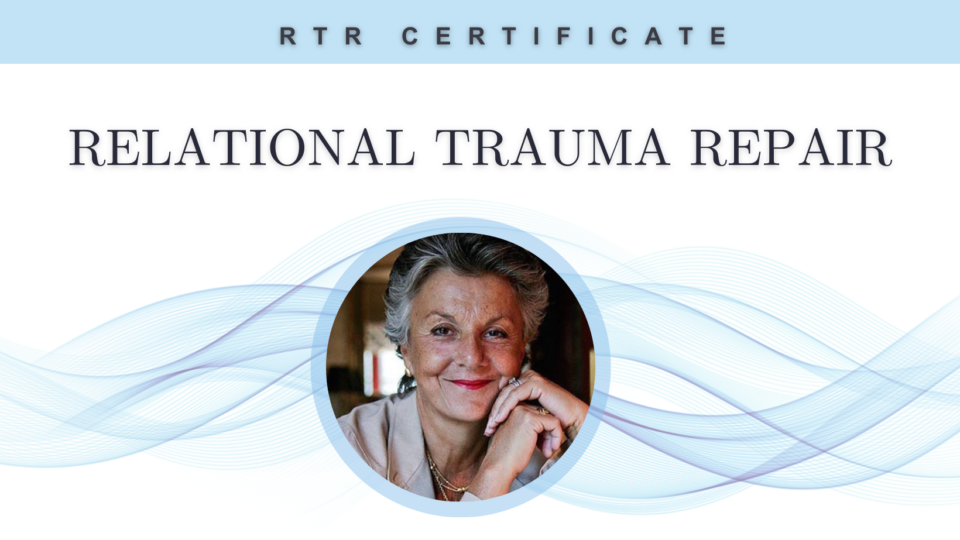
Module 4: Timelines: Tracing the Developmental Path of Relational Trauma and Resilience
Information
Recorded
Learning Objectives
Participants will be able to:
-
Explain a Trauma Timeline as a visual context through which to identify the developmental progression of trauma.
-
Utilize a Trauma Timeline to explain where traumas may have clustered in life or where there was little to no trauma.
-
Utilize a Trauma Timeline to identify where development may have been arrested or gone off track
-
Utilize a Trauma Timeline to put life experience back into a context and place traumatic experiences into real rather than imagined time.
-
Utilize a Trauma Timeline to talk to parts of the self at different ages along the developmental continuum.
-
Utilize a Resilience Timeline to identify and celebrate strengths and good choices.
-
Utilize a Resilience Timeline to identify times in life that felt good and went smoothly.
-
Utilize a Resilience Timeline to identify people who were supportive and showed us what love felt like and to thank them or express gratitude.
-
Utilize a Timeline to provide a way of focusing small dramas in which the protagonist can talk to parts of the self along their developmental continuum.
Educational Goal
The educational goal of this module is for participants to understand better how to use Trauma Times with clients in order to better understand the scope of lived experiences and identify strengths/supports.
Description
The Attachment Trauma Timeline: Those who have experienced relational trauma can lack a clear “who, what, when, and where” when they try to talk about their experiences. Because we may shut down or dissociate when we’re overwhelmed during painful exchanges, we may foreclose on our emotional reactions in those moments. Then later, when we want to examine them, our feelings can be unavailable to us.. Timelines offer a user-friendly way to bring order and clarity to this inner silence or chaos. The attachment trauma timeline helps clients to place experiences that they may have pushed out of consciousness into the overall framework of their lives and to identify reenactment patterns and attachment/developmental issues.
The Resilience Timeline: We often forget to celebrate our strengths and the good choices and positive relationships we have made that have helped us to get to where we are today. The Resilience Timeline is a way of taking stock of accomplishments, making good choices, consolidating gains, and identifying times that felt good and people who felt supportive.
Simply writing and sharing timelines is a complete experience. If you wish to add role plays, they are focused through the timeline process and give clients a chance to talk to themselves at whatever point along their developmental continuum that they are drawn to.
Presenters

Tian Dayton, Ph.D., is a Senior Fellow at The Meadows and a nationally renowned speaker, expert, and consultant in trauma, addiction, and psychodrama. Dr. Dayton is the director of The New York Psychodrama Training Institute and author of 15 books, including the soon-to-be-released Treating Adult Children of Relational Trauma, Sociometrics, Emotional Sobriety, The ACoA Trauma Syndrome, and others. A board-certified trainer in psychodrama, sociometry, and group psychotherapy, she’s spent her decades-long career adapting psychodrama and sociometry for work specifically with relational trauma and addictions. Her trademarked processes, Relational Trauma Repair/RTR-SOCIOMETRICS, are used nationally and worldwide. Dr. Dayton is a fellow of the American Society of Psychodrama, Sociometry and Group Psychotherapy ASGPP, winner of the Lifetime Achievement Award, their Scholar’s Award, the President’s Award, and former editor-in-chief of the Journal of Psychodrama, Sociometry and Group Psychotherapy. She also won The Marty Mann Award, The Mona Mansell Award, and The Ackermann Black Award. Dr. Dayton earned her masters in educational psychology and Ph.D. in clinical psychology. She served on the faculty at NYU for eight years and has appeared as a guest expert on NBC, CNN, MSNBC, and other major media outlets.
Financially Sponsored By
- Relational Trauma Repair (RTR)